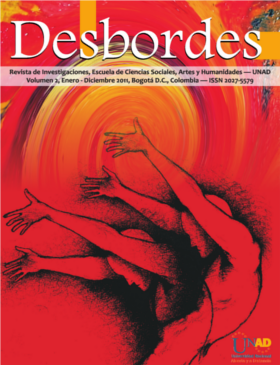Copyright (c) 2015 Desbordes

This work is licensed under a Creative Commons Attribution-NonCommercial-ShareAlike 4.0 International License.
La revista Desbordes se reserva el derecho de reproducción total o parcial del material en medio físico o digital, así como su inclusión en bases de datos, hemerotecas y demás procesos de indexación (SIRes).
La aceptación o rechazo de artículos postulados dependerá del concepto final emitido por los pares evaluadores y el aval de los comités editorial y científico.
Las ideas y conceptos expresados son responsabilidad de los autores y, en ningún caso reflejan las políticas de la UNAD
¿Imagined freedom or anarchistic imagination?
In 1936, Sartre published a text entitled "Imagination", which will be the prelude to another one published in 1940 and called "Imaginary". A few years later, in 1947 published, in a first volume to be called "Situations I", miscellaneous items, one of which is entitled "Cartesian Freedom".
This article is in principle based on these three texts, from which it addresses the relationship of the notions of freedom and imagination, with the idea of reality. The starting point then, is the textual analysis of Sartre's Cartesian Freedom, with the idea of recognizing the relevant arguments that validate the proposed approach to interpret the Cartesian thought or otherwise, those ideas not resulting solid for argumentation.
Undoubtedly the solution Sartre derived from the text above mentioned on the issue of freedom continues to be controversial. Just the title of this section attempts to capture the primary basis for this controversy: Does the idea of freedom or the feeling of freedom have a foothold in the real world? Or at the bottom it is nothing more than an illusion, an imaginary freedom? Or, from another perspective: Won´t it be precisely the ability to imagine what it can give human beings the possibility of genuine freedom, and in this sense could we speak of a anarchistic imagination?
In principle, we developed a synthesis of the commented text of Sartre pointing in particular where there is a problem that originates the approach about the imagination. Subsequently there will be an approximation to the definitions of the terms on this writing (freedom and imagination), with the idea of using them as a tool in the development of the two following chapters: 1) Imagined freedom and 2) anarchistic imagination. In any case, it always will be taken into account that for Sartre, imagination is a form of consciousness.




